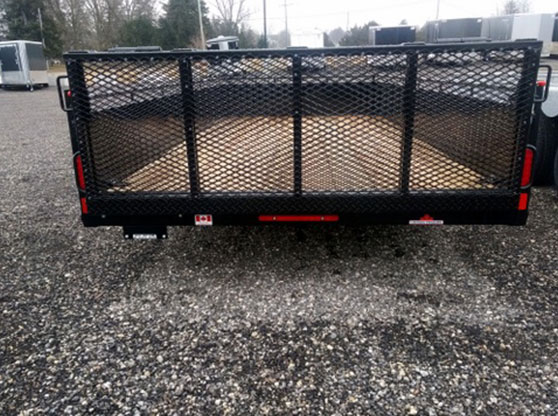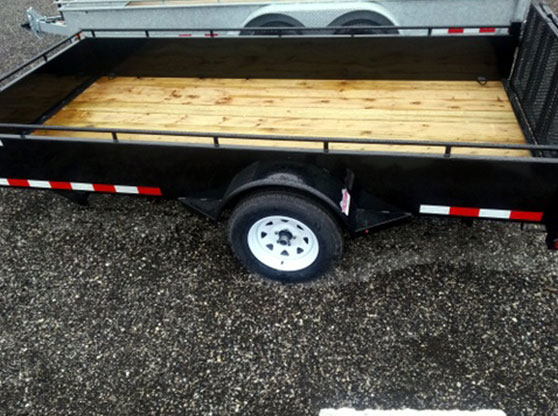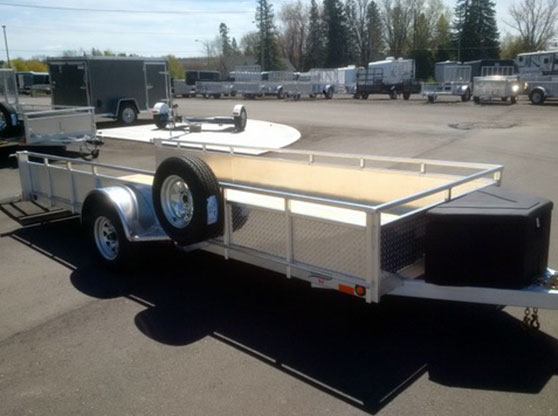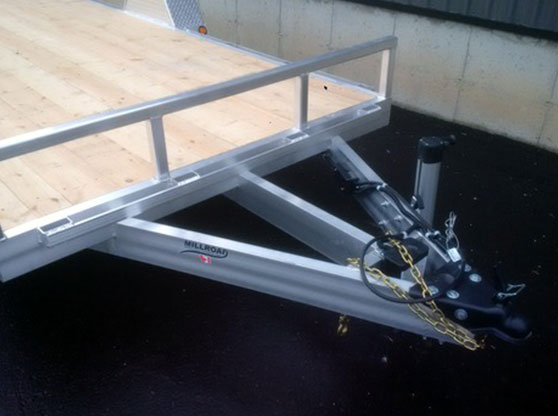If you are in the market for your first trailer, distinguishing between the various types of trailer construction can be challenging, as the terminology may sound completely foreign at first. The distinction between single axle and tandem axle trailers is a good example – those terms refer to the number of axles are on the trailer. Once you know the difference, it’s very simple to tell the difference just by glancing at the trailer. With access to more accurate and more detailed descriptions, customers can choose the most appropriate model for their needs without spending a fortune.
McFarlane’s follows a policy of transparent dealing, and we like to educate our customers on key points related to the performance of our trailers and their distinct features.




KEY FEATURES OF SINGLE AXLE TRAILERS
Single axle trailers are considerably smaller than tandem axle models, with only one set of wheels, they are unable to exceed a certain length without becoming unstable. However, smaller might be better in some situations, especially if we are talking about weight. Many trailers of this type weigh less than 750kg, and such models are not necessarily required to have their own independent brakes, although the owner may still decide to install them for the added safety. Single axle designs can be found in many trailer categories, from cargo trailers to smaller open utility trailers.
MAIN ADVANTAGES OF SINGLE AXLE TRAILERS
Due to their smaller weight, single axle trailers can be towed by smaller cars, SUV’s and are far easier to maneuver in traffic. Of course, the financial side shouldn’t be overlooked either – in addition to a lower price tag, single axle trailers require less maintenance over their lifespan. With the difference in price, buyers who are looking for a trailer to help with their DIY project are often justified in choosing a trailer with just one axle.
TOWING CAPACITY OF THE SINGLE AXLE DESIGN
Single axle trailers have limited cargo capacity and pushing them to the limit can easily result in mechanical damage or reduced safety on the road. This is not only because of the size – a single pair of tires takes significantly more pressure from overweight cargo, increasing the risk of a blown out tire. Without the added stability of a second axle, a single axle trailer is best suited for local use and not on highways.
SHOPPING FOR A SINGLE AXLE TRAILER CAN BE EASY
McFarlane’s lineup of single axle trailers is tailor-made to emphasize quality, so we stock only products made by renowned manufacturers that meet our high standards. Some of the brands standing out in this category are Canada Trailers, Millroad, Atlas and Bravo, each of whom has several single axle models with unique advantages. Thanks to our long-standing relationship with those companies, we are able to offer single-axle trailers at competitive prices, even for recently released models. If you are unsure whether you would be better served with single-axle or tandem-axle design, our representatives will help you compare those two classes and pick a trailer that will perform capably for a long time.




